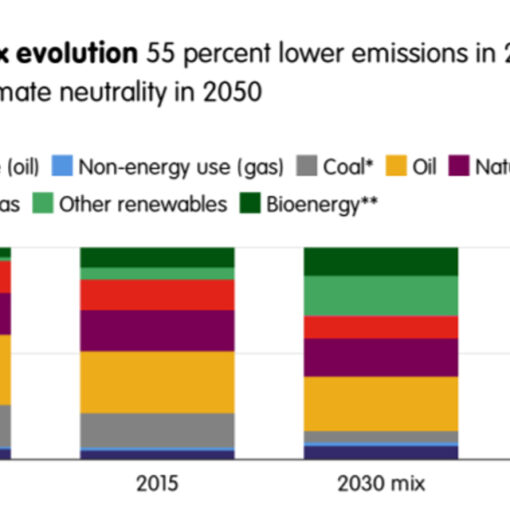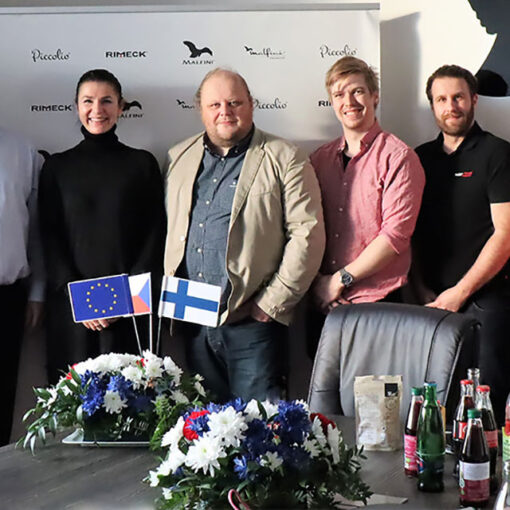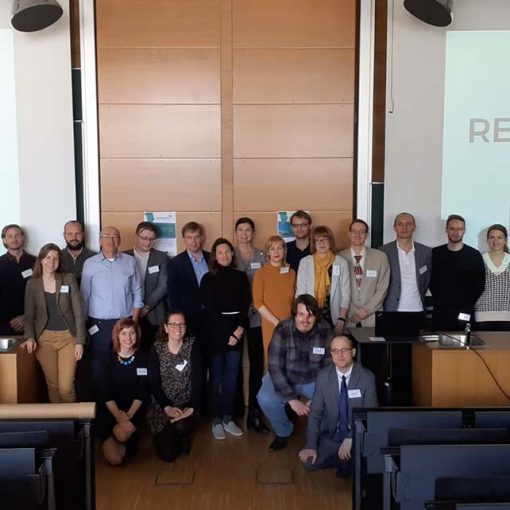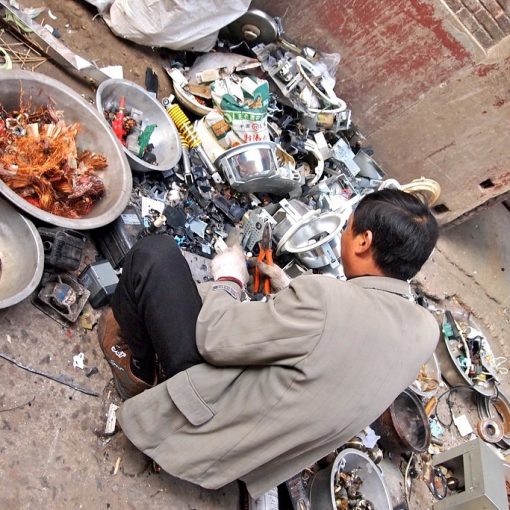Small and medium-sized enterprises (SMEs) are not called the backbone of the European economy for nothing. In the EU, 99% of all businesses are represented by SMEs, generating more than half of the EU’s GDP. (European Parliament 2021.) In 2021, almost 84 million people were employed by SMEs in the EU (Clark 2021).
COVID-19 Pandemic Impact
The pandemic measures have imposed a serious negative impact on many businesses. Simultaneously, the crises can constitute an opportunity for green recovery of the EU economy with bio-based circular economy as a catalyst. The COVID-19 outbreak has born the key role of bio circular economy in providing food, feed, and raw materials supply, rendering circularity and climate neutrality while fostering rural development and job growth (European Commission 2020).
The topic of bio-based circular economy and the development of regional policies is also addressed by BIOREGIO – Regional circular economy models and best available technologies for biological streams project
Additional year of BIOREGIO project activities
For fast recovery from the global COVID-19 pandemic and its consequences, Interreg Europe announced the fifth call for proposals of additional activities linked to the COVID-19 recovery. The call closed on 2 July 2021, proposals were assessed by the monitoring committee, and finally, 78 projects were granted funding. (Interreg Europe 2021.)
The BIOREGIO partners were delighted to receive further funding from the Interreg Europe Joint Secretariat under the fifth call for additional activities. The further year of project activities will enable us to explore the recovery measures in the context of the crisis and opportunities to develop bio-based circular economy in the participating regions (and beyond).
The proposed additional activities will address the identified needs to support authorities in preparing calls, recovery measures and assist stakeholders, particularly SMEs, in applying for funding. The additional activities have a chance to contribute to the improvement of the new programme period of the European Regional Development Fund (ERDF) 2021-2027 in terms of new projects to boost the regional bio-based circular economy, as well as to help to overcome the COVID-19 crisis impact.
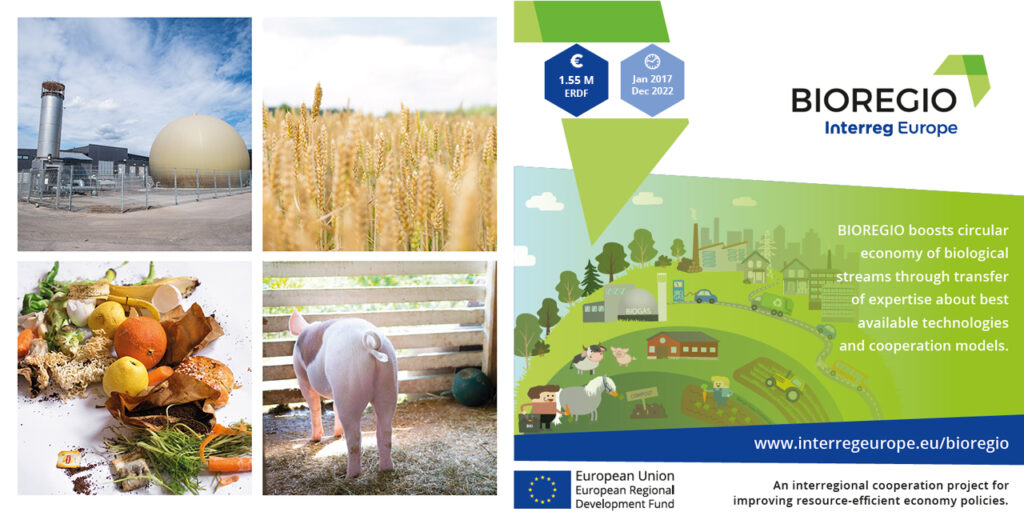
The exchange of experience among the project partners is performed in various ways. In 2022, BIOREGIO plans to hold one public thematic online workshop on how to boost bio-based circular economy together with SMEs, and one physical project meeting to share and exchange lessons learned and strengthen targeted policy instruments. The BIOREGIO partners will continue in identifying and exchanging good practices related to bio-based circular economy and COVID-19 measures to help regions mitigate the social, economic, and environmental effects of the outbreak. The project goals will be emphasized by internal and external communication, discussions with regional authorities and local stakeholders.
One new good practice was uploaded on the project website. It showcases an early warning tool that assists the city of Thessaloniki in the decision-making of interventions and measures against the COVID-19 spread. The method estimates the spread of SARS-CoV-2 from the load in wastewater sewage. Link to Good practice: Wastewater based epidemiology as a complementary decision-making tool
Author
Katerina Medkova works as an RDI specialist at LAB University of Applied Sciences and is the BIOREGIO Communication Manager. BIOREGIO is an Interreg Europe funded project, which started in January 2017 and lasts until December 2022. LAB University of Applied Sciences acts as BIOREGIO lead partner. Link to BIOREGIO project
References
Clark, D. 2021. Number of SMEs in the European Union 2008-2021, by size. Statista. Cited 30 Jan 2022. Available at https://www.statista.com/statistics/878412/number-of-smes-in-europe-by-size/#:~:text=There%20were%20estimated%20to%20be,employed%20fewer%20than%20nine%20people.
European Commission. 2020. Developing a circular and sustainable bioeconomy for Europe: new report by the Network of Experts on Bioeconomy sets out the main opportunities and challenges ahead. EU SCIENCE HUB. Cited 30 Jan 2022. Available at https://ec.europa.eu/jrc/en/science-update/developing-circular-and-sustainable-bioeconomy-europe-new-report-network-experts-bioeconomy-sets-out
European Parliament. 2021. Covid-19: how the EU can help small businesses. News. Economy. Cited 30 Jan 2022. Available at https://www.europarl.europa.eu/news/en/headlines/economy/20210107STO95112/covid-19-how-the-eu-can-help-small-businesses
Interreg Europe. 2021. The fifth call in figures. Cited 31 Jan 2022. Available at https://www.interregeurope.eu/news-and-events/news/12880/the-fifth-call-in-figures/
Rouhiainen, O. 2018. Biological resources create the foundation for the bio-based circular economy. In Orola, A. (ed). 2018. Lahti Circular Economy Annual Review 2018. Lahti: Lahti University of Applied Sciences. 21.
Links
Link 1. Interreg Europe. 2022b. Good practice: Wastewater based epidemiology as a complementary decision-making tool BIOREGIO. Cited 30 Jan 2022. Policy Learning Platform. Available at https://www.interregeurope.eu/policylearning/good-practices/item/5968/wastewater-based-epidemiology-as-a-complementary-decision-making-tool/
Link 2. Interreg Europe. 2022a. Project Summary. BIOREGIO. Cited 30 Jan 2022. Available at https://www.interregeurope.eu/bioregio/

